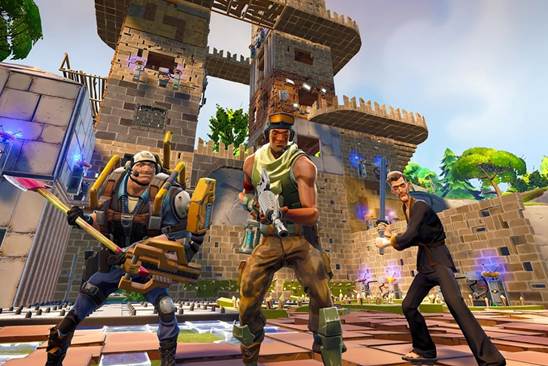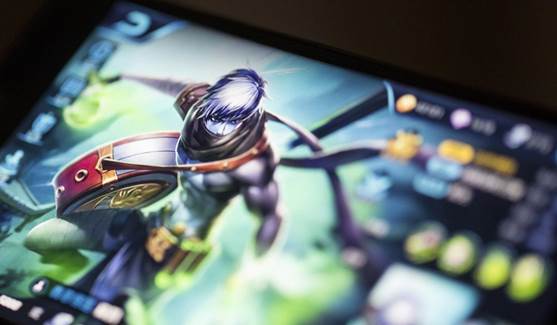Gaming stocks surge after official says China has resumed video game approvals after 9-month freezewww.wanmei.com 2018-12-21

Still from the video game Fortnite. Amid the regulatory hiatus, China’s gaming industry suffered its slowest growth in at least a decade. Photo: Handout
The Chinese government has resumed approvals of video games after a nine month freeze, sending a much-needed message of hope to the world’s biggest gaming market.
Feng Shixin, an official with the Chinese Communist Party’s propaganda department, said on Friday that the country’s new gaming regulator has finished reviewing an initial batch of video games, which will soon receive licenses for domestic publication. It was the first official recognition that the license approval process has resumed.
“The first batch of games have been reviewed. We will hurry up to issue licenses,” said Feng, deputy head of the State Administration of Press and Publications (SAPP), according to multiple Chinese media reports on Friday. “There is a big stockpile of games for review, so it takes a while. We will continue to work hard. [We] hope everyone can be patient,” he said in remarks seen on video, without providing any further details.
Feng’s remarks, delivered at the country’s annual gaming forum held in the southern province of Hainan, remove a huge regulatory overhang that has put China’s major video games producers on edge and knocked billions off market valuations. China gaming stocks surged on Friday.
Earlier this month, the propaganda department established a new body to review ethical issues in video gaming, which was taken as a sign that game licensing would resume soon.
Publishers in China are required to submit games for review to authorities before they can be sold in the domestic market, but the process has been suspended for about nine months as Beijing tightened its control over gaming amid concerns over childhood myopia and online addiction. The SAPP, which falls under the Communist Party’s propaganda department, has not awarded licences to any new game titles since it was formed in April as part of a broader government shake-up.
“Chinese gaming demand has not reduced during this licensing hiatus but gamers will be pleased when new titles are launched, particularly if the list includes some of the blockbusters they’ve been waiting for,” said Lisa Hanson, managing partner with Asia-focused gaming research firm Nikos Partners.
“We heard that the first announcements will be for domestic games, with foreign games to follow. A few days or weeks will not make a difference to the gamers, but the game publishers will have a lot of work to do,” added Hanson.
In October, Tencent announced the use of
facial recognition technology
to detect minors playing its games in response to government concerns over video gaming addiction. The Hong Kong-listed internet giant has also made age-verification mandatory to those who log into its blockbuster mobile game Honour of Kings, which limits playing time for minors.

An avatar is displayed in an arranged photograph of the Honour of Kings mobile game, developed by Tencent Holdings, in Hong Kong, August 2017. Photo: Bloomberg
Chinese game developers have also ramped up efforts to publish their new titles overseas, while some independent labels have sought to reach the domestic audience via US personal computer games distribution platform
Steam
, which has an estimated 30 million users in China.
Amid the regulatory hiatus, China’s gaming industry suffered its slowest growth in at least a decade. In 2018 the country’s gaming market is forecast to reach revenue of 214 billion yuan (US$31 billion), up only 5 per cent from last year, according to data released Friday by Beijing-based research firm CNG. This would be the first time that the market has slowed to single-digit growth since 2009.
Shares in Tencent, China’s biggest gaming company, closed 4.5 per cent higher at HK$315 in Hong Kong on Friday. Shares in Perfect World closed 6.7 percent higher at 28.14 yuan in Shenzhen.
“It’s obviously exciting, good news for China’s game industry … We are confident that Tencent will provide more excellent cultural works to society and the public after the games approval [process] is resumed,” the Shenzhen-based company said in a statement.
“[The news] enhances confidence in our future development… and adds to our sense of duty and urgency as a gaming company to shoulder more social responsibility,” Perfect World said in its statement on Friday.
Gaming firms including Hubei Century Network Technology Co Ltd, Youzu Interactive Co Ltd and Shanghai U9 Game Co Ltd all rose by their daily maximum limit of 10 per cent in morning trading on mainland bourses.
“The surge for game developers confirms the importance of the news for the whole industry,” said William Li, senior analyst at Beijing-based data research company Context Lab. “The publishers can monetise their games after obtaining licenses. It is critical to increasing revenue for game publishers.”
Additional reporting by Iris Deng
